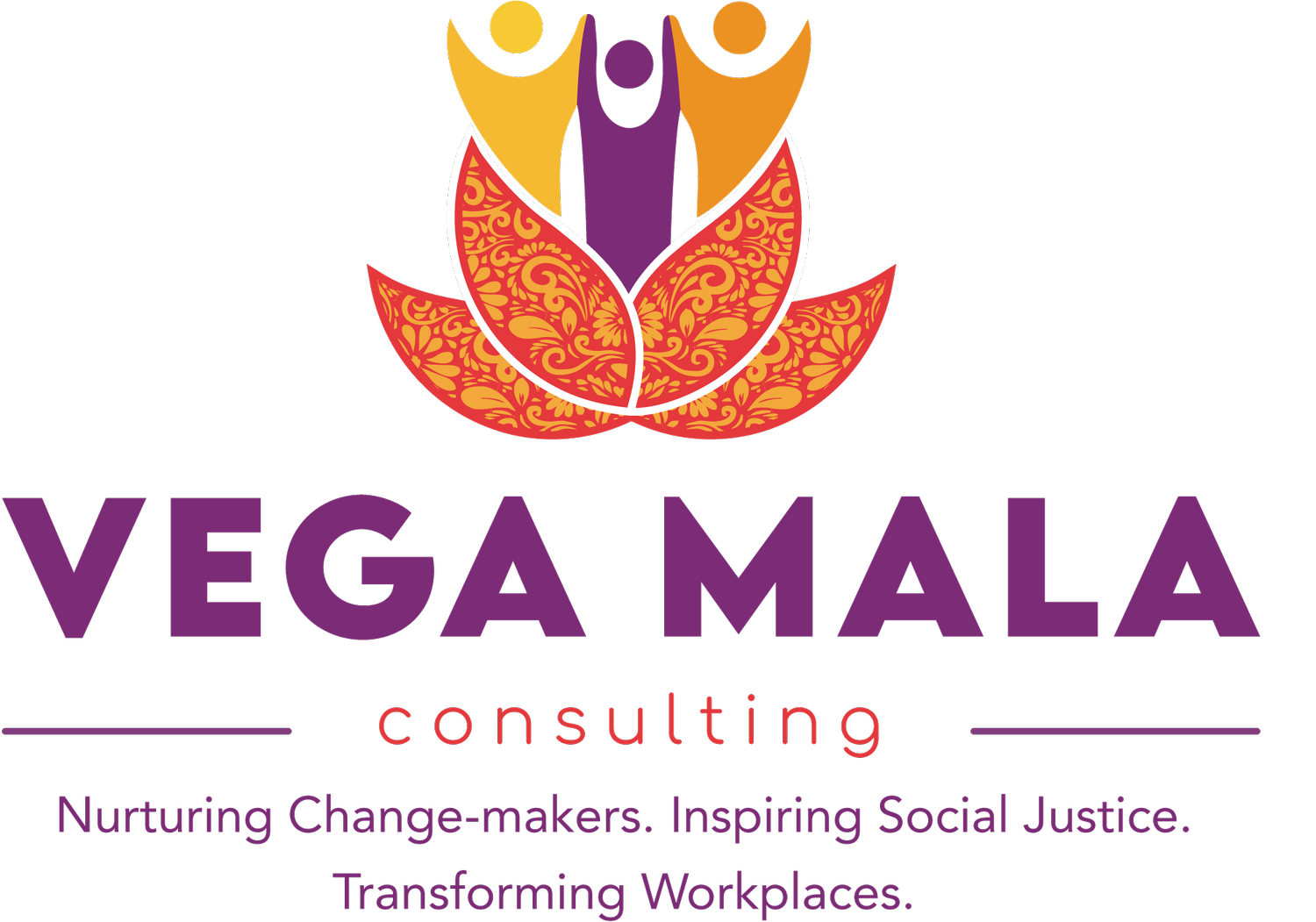Equitable Compensation is a Risk Worth Taking
Compensation is one of the greatest taboos in our current culture. That’s no accident: compensation is at its very core how oppression, in our deeply inequitable society, has been perpetuated across race, gender, class, ability, and other marginalized identity groups.
If you aren’t even allowed to talk about compensation, how do you begin to make it more fair and equitable?
One of our key areas of work is helping social justice organizations create equitable compensation practices. Constructing a compensation structure with a lens around equity infuses a people-centered, values-based foundation into the work. It also:
Interrupts how privilege gets replicated;
Intentionally values labor that society doesn't always value monetarily or economically;
Counters implicit and explicit biases operating at all levels - societal, institutional, interpersonal, individual – that can seep into the process of setting compensation; and
Helps organizations be vigilant, unpack assumptions, and make transparent what will and will not change, or what can and cannot change.
None of this is easy, and the nonprofit industrial complex is subject to historical trends that reproduce patterns of inequality. Nonprofits have generally paid staff very low wages, which often meant those who could most afford to run or work for nonprofits are people who have access to time, money, social capital, and other resources. Increased governance, the professionalization of the nonprofit sector, and the focus on growing executive salaries to retain or attract "good" executives have created a widening chasm between the highest and lowest paid employees. Even standard percentage-based compensation practices (such as an annual cost-of-living-adjustment or a certain percentage organizational match for your retirement contribution) only further economic inequality by disproportionately benefiting the folks at the top of the compensation scale, who are usually already privileged to begin with.
Despite these challenges, every organization can still make intentional choices – today, right now – about how it can compensate staff in a way that's more values-aligned.
Shannon Ellis, CompassPoint's Interim Co-Director, recently wrote an excellent blog post, "Reimagining Compensation: It’s Time to Stop Building on Inequities of The Past," about the ingrained assumptions about compensation that had to be interrogated and upended through CompassPoint's own equitable compensation process. (I'm excited to hear more about their practices and learnings!)
She writes, "Compensation is where our values are tested, our willingness to take (real or perceived) organizational risks is codified, and ultimately where decisions are made that directly affect people’s livelihoods." In reflecting on the process, she identifies three key learnings (shared here for quick reference, but the whole post is worth a read):
"Building on the inequities of the past won’t set a foundation for a just future.
We have to engage in risk leadership, not risk management.
It is continuous work to uproot, over and over again, the pervasive nature of internalized dominance and paternalism."
Like Shannon, we've found some of the hardest parts of an equitable process are simply to imagine alternatives. The only way we can truly counter the oppression embedded and perpetuated in compensation practices is to challenge our very understanding of labor - what gets seen as labor, who gets to direct labor, and who has access to resources and can decide where to direct those resources.
For example, why is managerial labor seen as highly compensable work but the emotional labor performed by a rape crisis counselor or a union organizer not seen as so? Are all hours and responsibilities equal? Is one hour of managerial or fundraising work equivalent to one hour of community building, organizing, or service? It's illegal to base compensation on a protected class such as race or gender, but compensation based on education or years of experience is not. Does this make sense for the roles at your organization? Is there attention to who has had access to education and experience as a result of years of historical discrimination?
Ultimately, every organization must develop its own compensation philosophy to get really clear about how it values different types labor and how it builds accountability and trust around these decisions. We recommend a compensation philosophy be developed by a cross-organizational team. (Check out RoadMap Consulting's Salary Policy Discussion Guide, developed by our RoadMap colleague, Margi Clarke, as an additional resource for these conversations.)
We have to be willing to make some courageous decisions, knowing that all inequality won't be fixed instantly and that it is an ongoing process without a definitive end point. There are many possibilities forward, and expanding our approach to pay is a long-term strategy with immediate implications for the people we worth with everyday. I tell my clients that we're on the edges of innovation, so we see this as an emergent process, one that moves us along together.
For the sake of the well-being of our communities and the world we are trying to create together, we can't afford to not practice, as Shannon Ellis puts it, risk leadership.
P.S. Interested in bringing equitable compensation practices to your organization? Let us know!

